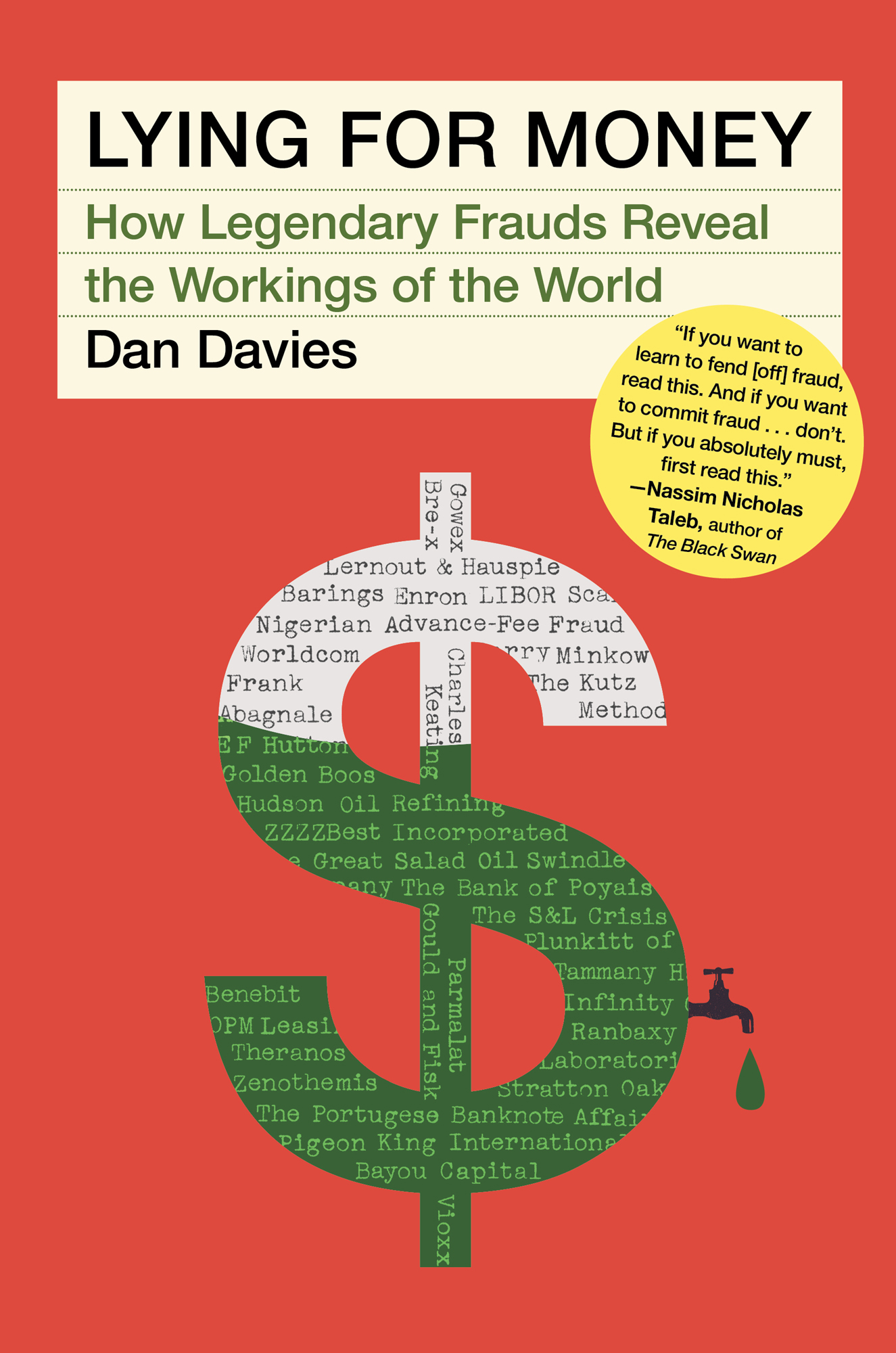
Lying for Money
How Legendary Frauds Reveal the Workings of the World
- اطلاعات
- نقد و بررسی
- دیدگاه کاربران
نقد و بررسی

January 15, 2021
An investigation of the world of scam artists old and new. Fraud is largely confined to the white-collar sector, writes Davies, a former regulatory economist at the Bank of England. For the most part, it operates "by manipulating institutional psychology"--i.e., it all looks legitimate until it comes crashing down, surprising those caught up in the scheme. Fraudsters, he adds, take advantage of systemic weaknesses as much as the foibles of individuals, the kind of thing that could be remedied by due diligence, if only it were undertaken. Davies writes intriguingly of a minor mobster in New England who perfected the "bust-out," by which he would set up shop selling toys or other consumer goods, paying his bills on time until December--then up his orders for the holidays, sell what they could, fence the rest, declare bankruptcy, and burn down the warehouse from which they'd been operating. That scam isn't new, and to this day, it and related ploys are extremely profitable, embroiling people in burns such as the Silk Road scam--which, by selling illegal drugs via cryptocurrency, effectively shielded itself from consumer complaints when the goods never arrived. You need not be a drug lord, of course. One of the author's case studies is Charles Keating, who took his savings-and-loan business through an elaborate scheme that involved a "clever means of cash extraction" that played on a systemic weakness built into capitalism: the demand to grow, grow, and grow. "The problem was, if you use fast growth to create the illusion of success, eventually the new loans get old and the problems catch up with you," writes Davies in an entertaining narrative--and of course they did with Keating, Silk Road, and just about every other scam artist in the end. Readers who like their true-crime stories laced with economics will enjoy these forays into the dark side.
COPYRIGHT(2021) Kirkus Reviews, ALL RIGHTS RESERVED.

April 23, 2021
Former economist Davies explores financial fraud--crimes that exploit the trust that allows the markets to function. Examining major types of fraud, including counterfeits, cooked books, and market crimes, he details cases such as the Portuguese Banknote Affair of 1925, Bernie Madoff's Ponzi scheme, and Elizabeth Holmes's fraudulent health care company Theranos. However, Davies fails to tie his many examples together into a compelling narrative. Perhaps in an attempt to make potentially dense, challenging content more accessible, the author writes in a light, often jokey tone, reminiscent of his Twitter presence; this often comes across as callous, given that the crimes he discusses had devastating effects, and that many of the perpetrators have gone unpunished due to their racial and economic privilege. VERDICT General readers will be interested in many of the examples of fraud, but those without a background in finance might struggle with jargon or the lack of central narrative.--Jessica Hilburn, Benson Memorial Lib., Titusville, PA
Copyright 2021 Library Journal, LLC Used with permission.




دیدگاه کاربران